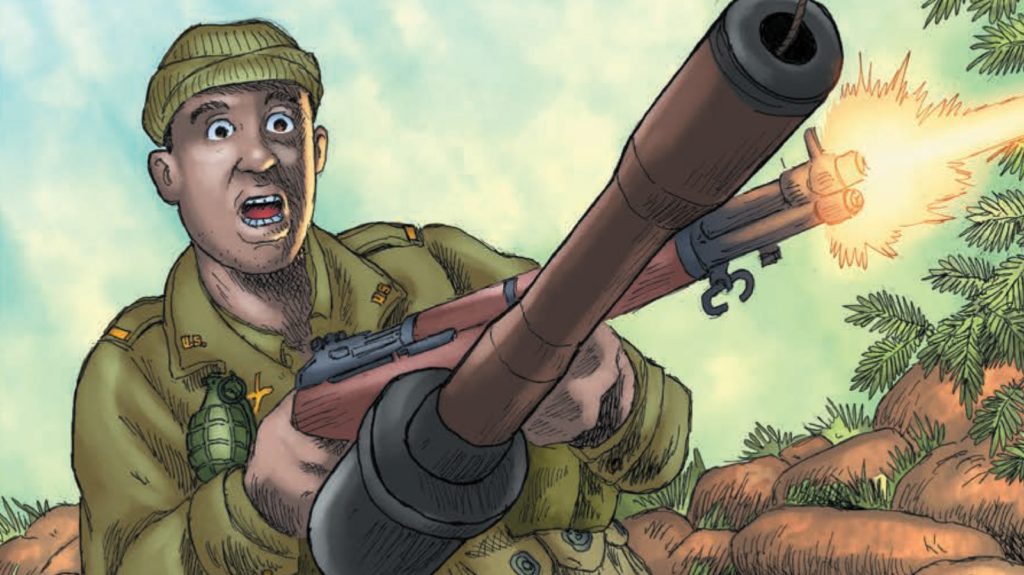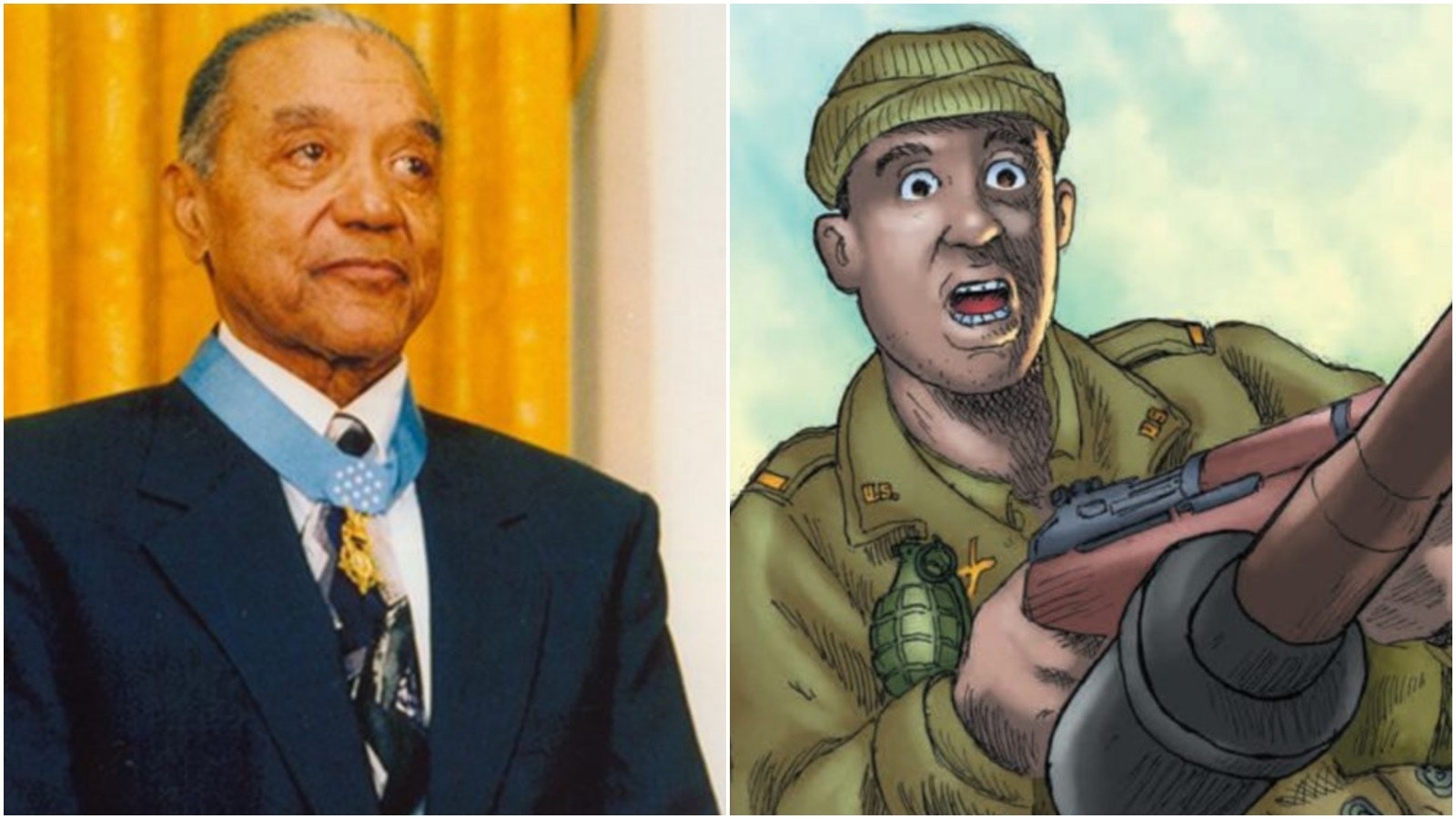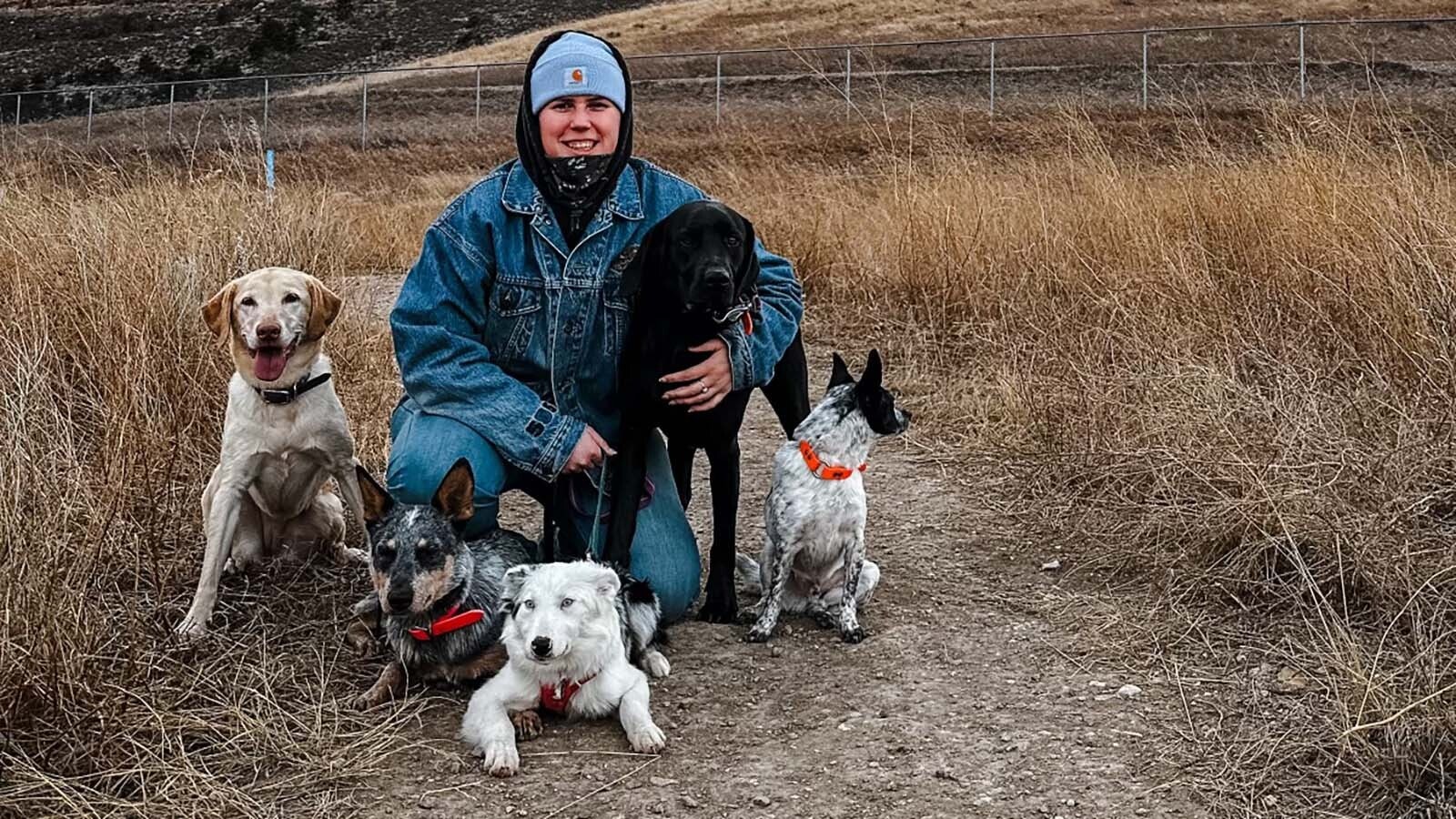A Cheyenne native who was a World War II Medal of Honor recipient has been memorialized in a new graphic novel issued by the Association of the U.S. Army.
1st Lt. Vernon Baker, who was born in Cheyenne, received the Medal of Honor in 1997, 50 years after winning a Distinguished Service Cross for his actions while serving in Italy in World War II.
“Vernon Baker’s heroic actions make for quite a remarkable story,” Cheyenne Mayor Patrick Collins told Cowboy State Daily on Wednesday. “How fitting an honor to have a graphic novel showcase his life to current and future generations. Vernon’s early roots were established here in Cheyenne as he lived with his grandfather who worked for the railroad. We’re proud of the legacy Vernon built and to have Cheyenne be a small part of that.
“Vernon’s legacy lives on in Cheyenne at the Buffalo Soldier Park named in his honor,” Collins continued. “He was aware the city bestowed this honor before he passed and we take solace in that. We thank the Association of the United States Army for putting this together; to honor Vernon and his African-American colleagues who fought in World War II and received the distinguished Medal of Honor.”
Baker’s story is the 13th featured in the “Medal of Honor” series, which was launched by the association in 2018. The graphic novel can be read online for free here.

“It was an honor to work with such a talented team to help bring attention to this remarkable soldier,” said Joseph Craig, director of the AUSA Book Program. “Baker had to wait more than half a century for full recognition of his service in World War II; we want to help make sure that service is always remembered.”
Baker led his platoon in an assault on a German stronghold in the mountains of Italy during World War II.
He was born in Cheyenne in December 1919 and was orphaned at the age of 4. Baker was then raised by his grandparents and worked as a railroad porter during the Great Depression before trying to join the Army.
While his first attempt was rebuffed, he persisted and was accepted into the infantry.
Baker was commissioned as a lieutenant in the 92nd Infantry Division, known as the Buffalo Soldiers, and led his soldiers into combat in the summer of 1944 in Naples, Italy. In April 1945, Baker and his soldiers were sent to assault Castle Aghinolfi, a German strongpoint in the Italian mountains.
As they moved toward the castle, Baker came upon a German observation post tucked into the edge of a hill.
“Crawling up and under the opening, he stuck his M-1 into the slit and emptied the clip, killing the observation post’s two occupants,” according to his Medal of Honor citation.
Baker then killed two more enemy soldiers who were in a well-camouflaged machine-gun nest nearby.
Shortly afterward, a German soldier hurled a grenade at the Americans. When it didn’t explode, Baker shot the enemy soldier twice as he tried to flee.
Baker then used a grenade to blast open the concealed entrance of another dugout.
He “shot one German soldier who emerged after the explosion, tossed another grenade into the dugout and entered firing his sub-machine gun, killing two more Germans,” according to his citation.
As Baker climbed back out of the draw, enemy machine-gun and mortar fire began raining down on his soldiers.
When reinforcements didn’t arrive, Baker volunteered to cover the soldiers’ withdrawal, destroying two more enemy machine gun positions in the process.
“In all, Lieutenant Baker accounted for nine enemy dead soldiers, elimination of three machine gun positions, an observation post, and a dugout,” the citation said.
The next night, he led a second assault through the enemy mine fields and heavy fire toward the castle.
He received the Distinguished Service Cross for his actions.
In 1996, more than 50 years later, the Army found that Baker and six other Black soldiers had been denied the Medal of Honor for their actions during World War II, according to the National World War II Museum.
Baker, the only one of the seven soldiers still living, received the Medal of Honor in a 1997 White House ceremony.
“I was a soldier, and I had a job to do,” Baker said after receiving the award, according to the New York Times.
He died in July 2010 at the age of 90.





